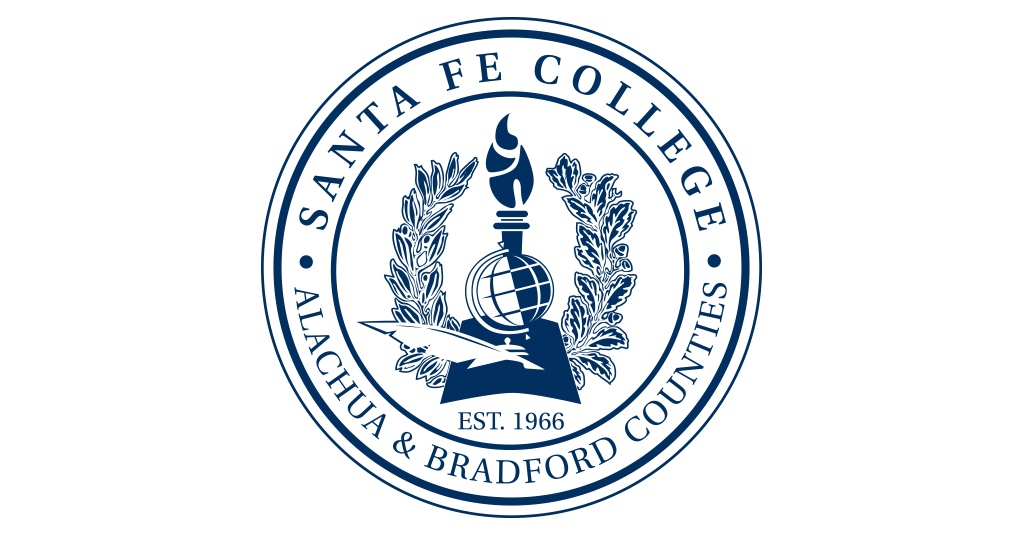Santa Fe College Launching New Electronic Medical Records Training Sept. 30
September 3, 2010
Starting Sept. 30, Santa Fe College will debut a new Health Information Technology, or HIT, workforce training program that it hopes will be, well, a hit.
As the nation begins its transition to electronic health records, this non-degree program will provide opportunities for healthcare specialists to learn about information technology, and vice versa. Already, 56 students have expressed interest in the program through its newly established website, a number which nears the program's stated goal of 150 students per year.
Being entirely online, Santa Fe's HIT Workforce Training Program will train students from a total of 50 counties, including 38 from Florida and 12 from Alabama. In six months or less, the participants can train in one of five workforce roles, including implementation support specialist, implementation manager, technical support staff, trainer, and information management redesign specialist.
Tuition ranges from $800 to $1,000. The program offers compensation for students who complete the program and begin working in relevant jobs. About half of what a student paid in tuition would be refunded through the stimulus grant. The college would benefit too, since it is scored on how many students graduate and find work.
The HIT workforce training program represents one in a wave of newly founded HIT programs. The Office of the National Coordinator for Health Information has issued a first-of-its-kind workforce training grant for HIT, and Santa Fe was one of three Florida schools to receive this federal funding.
Throughout the country, a total of five consortia of colleges exist with an aim of training 10,500 people a year. Santa Fe is included as part of the Southeast Region D Consortium, comprising 13 colleges from New Mexico eastward, all starting HIT training of their own.
“There's no model for this type of thing,” said Tracy Jones, grant coordinator for Santa Fe's HIT program. “Everybody's learning at the same time.”
The need for these programs has been prompted by the Obama administration's mandate that by 2015 all paper health records must be transferred to electronic media as part of the 2009 American Recovery and Reinvestment Act. Santa Fe's HIT workforce training program received $1,070,000 in stimulus money to initiate the first two years of its program.
“The government is building the infrastructure, and we'll do the workforce training,” said Jones.
The transition to electronic records will open up an estimated 50,000 new positions for trained professionals in health information technology, but it is also expected to improve access among healthcare professionals, thus reducing healthcare costs. With the current paper system, different doctors often run redundant tests on the same patient, but with electronic medical records, practitioners could instantly access a patient's history and avoid repeating the same tests. Also, the Institute of Medicine in 1999 approximates that 98,000 people die annually from medical errors, a figure which could be reduced with the improved communication facilitated by electronic records.
“You can improve healthcare by improving access,” said Jones, in summary. “As health information professionals, we've been waiting for this for years.”
Representing Santa Fe College, Tracy Jones, Director of Information Technology Education Eugene Jones, and Director for Health Information Technology Julie Shay, recently went to Portland, Ore., to receive curriculum training.
“It was nice to be with other administrators sharing concerns and strategies,” says Tracy Jones.
With Sept. 30 and the start of HIT classes approaching, Jones and her colleagues face the pressure of opening a brand new grant program, but they also feel a degree of pride in contributing to Florida's economic renewal as part of the stimulus plan.
“It's exciting because we came in and could craft things from the very beginning. We could watch growth from the ground up,” said Jones. “What we would like to do is make this program sustainable in the Santa Fe system in the long-term.”
For more information call Grant Coordinator Tracy L. Jones at 352-381-3780 or go online to www.sfcollege.edu/hit.
~This press release was written by Allison Griner, Communication Specialist, College Relations
CONTACT
- Tracy Jones, HIT grant coordinator, 352-381-3730 or tracy.l.jones@sfcollege.edu
- Julie Garrett, media relations coordinator, for help facilitliating your story, 352-870-2924 (cell) or 352-395-5430 (office) or julie.garrett@sfcollege.edu

